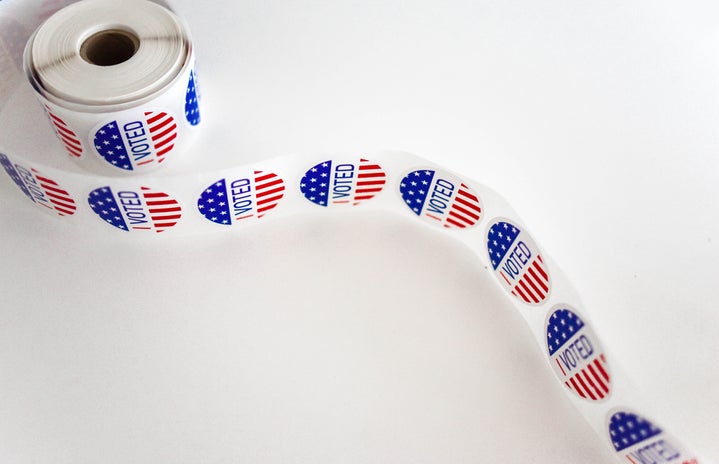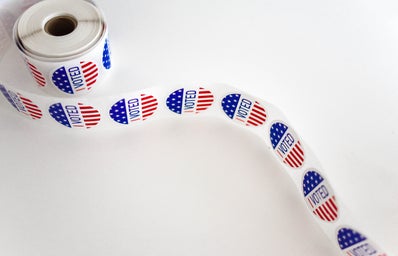68% of Republican women call themselves pro-life while only 59% of Republican men label themselves the same. 2024 Republican presidential candidate Nikki Haley signed a 20-week abortion ban in South Carolina.
In the 1970s, conservative activist Phyllis Schlafly rallied housewives all over the country to oppose the Equal Rights Amendment–which would have guaranteed equal legal rights for all American citizens, regardless of sex. Thanks largely to Schlafly’s efforts, the amendment failed, and hasn’t been revived since. She’s been referred to as “one of the most influential figures in modern political history.”
Josephine Dodge founded the National Association Opposed to Woman Suffrage in 1911. Mrs. William Force Scott actively opposed women’s suffrage her entire life.
I’ve written about woman-on-woman political battles before. From President Biden choosing between multiple female Supreme Court Justices to the harm “white-only” feminism has brought to the women’s rights movement, politics is hardly a girls-support-girls world–it isn’t quite there yet.
But, as a left-leaning woman who’s on the cusp of a Bachelor’s degree in political science, one question of feminine support has always haunted me. This is the question of the mere existence of women like Nikki Haley and Phyllis Shclafly, who have rallied against the protection of women under United States law. And the question of how I feel about their indubitable success.
How can they do this to other women?
Wait–do they owe anything to other women? Do I owe anything to other women? Do I owe them my grudging support? Or my vehement opposition?
Why am I holding women to a standard of sisterhood, when I hardly hold any men in Congress to a standard of brotherhood (and would scoff at the idea)?
How would I feel if Nikki Haley were elected president? Would I be betraying my gender if I were upset? Would I be betraying my values if I were excited?
I could have written an op-ed on my journey across the ocean of feminist theory to find the answer. But, as I started my boat and pushed off from the coast, I realized it wouldn’t be much of a journey to just find my opinion. I couldn’t pursue the ugly underbelly of female politics while leaving all females but myself waving from the shore.
So instead, I polled 65 women aged 18-56+ on their feelings towards women in politics that they disagree with.
hitting the polls
And they answered with near certainty–for them, gender politics stop at the partisan line.
95% of the women interviewed, regardless of age, gender, or partisanship, would only prioritize voting for a woman candidate if that woman candidate had the policies the respondent wanted. Only if a male and female candidate had very similar policies would these respondents consider the gender of the candidates. They elaborate in their written responses:
“Policy and morals matter over gender” (Democratic woman, aged 18-25).
“If candidates are equally appealing in terms of their stances and qualifications, I will vote for the woman and/or the people of color because we need more diverse voices in politics” (Democratic woman, aged 36-45).
“If two candidates align with my political views and have similar policy agendas, I’ll favor the woman over the man. However, if I agree with the male candidates’ policy agenda more than the woman’s, I’ll vote for the man” (Independent woman, aged 18-25).
“If I disagree with a candidate’s policies, gender will not matter. If I accept their policies, gender will come into play” (Republican woman, aged 56+).
When asked about how they would feel if a woman president were elected who they didn’t agree with, 80% of women polled said they would not be happy with the election. In fact, this group of women would rather have four more male presidents (meaning, 16-32 more years of male leadership) than have a female president whose policies they didn’t support come 2024.
Some conceded (around 40%) that yes, a female president would be somewhat exciting, even with policies they didn’t agree with reaching the highest office in the United States. However, feelings would be generally negative:
“I’d rather have a donkey with two heads in office that supports my rights than a woman in office that doesn’t” (Democratic woman, aged 18-25).
“It depends on the policies. I cannot understand how women vote against rights on our bodies” (Democratic woman, aged 46-55).
“Unfortunately, due to lack of precedent, I would feel betrayed by a woman who didn’t prioritize more progressive policies; especially regarding reproductive rights” (Independent woman, aged 36-45).
“Women have a long way to go in catching up to male accomplishments. I can be proud of that regardless of my political affiliation” (Democratic woman, aged 36-45).
mulling it over
The elephant in the room is, well, the lack of elephants in the room when it comes to the demographics of this poll. Only three of 65 women who responded identified as Republican. Seven of 65 women identified as Independent.
I’m from Boulder, Colorado–where 77% of the population votes democratic. Nationwide, women are “significantly more likely” to vote democratic than men. This created a polling sample that undoubtedly represented democratic women more than any other.
I also wish I had included race in the demographic collection of my sample. After reading the responses I was given, it became clear to me that being able to choose gender over policy would be a privilege–white women could vote for a female candidate without many repercussions, while a woman of color may be heavily and negatively affected by policies of this female candidate. This subject, without a doubt, deserves more research and I implore any readers who have the time and funding to do so.
Despite this, the results still show important findings. Democratic women find crossing party lines just because of gender identity to be overall, unbearable and undoable.
sisters over misters?
The more I analyze the data I collected, the more I am filled with a strong sense that this lack of support for candidates simply based on gender is a positive phenomenon. Yes, I was raised (as many were my age) to support women in positions of power, for they were paving the way for the young girls below them. Yes, there has still not been a female president in the United States, and my heart aches every time I see a female candidate lose funding or drop out of the race.
But feminism is not the prioritization of women above all. It is, at its very core, the promotion of gender equality.
Women are allowed to disagree with other women. They are allowed to feel more represented by a man. And they are allowed to feel disappointed in the success of another woman if they are feeling this on the basis of morality or policy. This is good.
Gone are the days when there was only one spot for women in Congress or the debate stage. Gone are the days when political figures like Betty Friedan and Gloria Steinem had to grin, hold hands, and bear it, despite disagreeing on some issues.
I still am not sure how I would feel (although I’m sure it would be largely negative) if Nikki Haley were elected president. But not every woman has the same beliefs–and we don’t have to.
Being a woman in politics is a minefield. Though a sense of nostalgia for a time past when there were few enough women that some had to appear to stick together to get their voices heard rings in my ears every time I wince at a Republican woman renouncing abortion rights, we must march on. And however heartbreaking a fork in the road of that march may be, it is a fork unavoidable.


